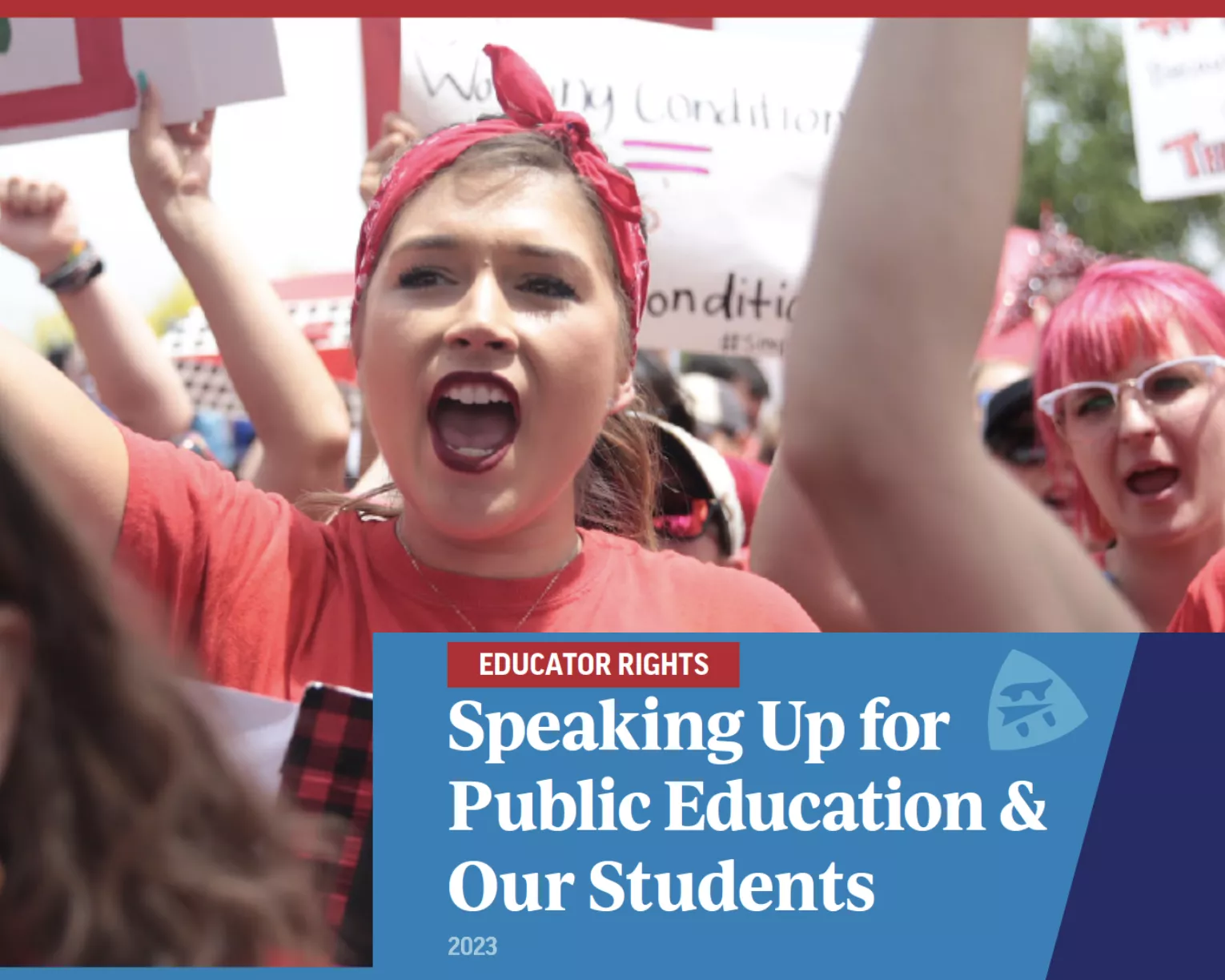You can speak at school board hearings, state legislative sessions, and federal Congressional hearings.
NEA members have shared their experiences with elected representatives on some crucial issues, including the need for honesty in education, ways to support LGBTQ+ youth, and more.
Elected representatives need to hear from you as they make decisions that will affect public education.
You should be careful that your actions and speech do not violate community norms or expectations as to how educators should behave.
Educators can be held to higher standards than other members of the public, resulting in greater scrutiny of the subject and content of your speech.
The First Amendment does not protect speech on private matters. It also may not protect speech that is offensive or disrespectful. Similarly, tenure laws broadly protect teachers from being terminated for off-duty conduct, but not where the conduct violates community norms or expectations of how educators should behave.
In the next section discussing Social Media Activity, we provide further detail about how the context and content of your speech impacts the extent to which it is protected. Some of the advice is specific to social media, but you should keep the general principles in mind for all out-of-school speech.
Speak Up For Students and Public Schools
